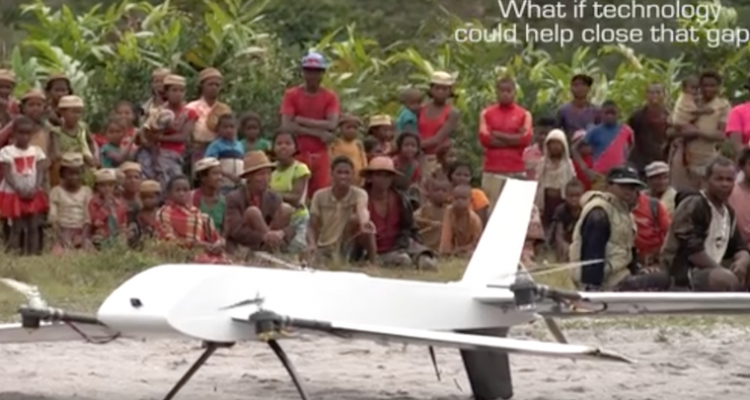Madagascar has become the latest African country to leverage drones to deliver essential healthcare services to remote rural communities. Clinical lab samples collected from far-flung villages are transported via drones to a central lab. The initiative, a collaboration between the government, Vayu, Inc. and Stony Brook University, will help to leapfrog infrastructural challenges affecting the delivery of healthcare solutions in parts of rural Madagascar.
Madagascar has become the latest African country to leverage drones to deliver essential healthcare services to remote rural communities, after launching a drone delivery network to transport vital blood samples from remote areas of the country.
Clinical lab samples collected from far-flung villages are transported via drones to a central lab for analysis.
The initiative helps to leapfrog infrastructural challenges affecting the delivery of healthcare solutions in parts of rural Madagascar.
The collaborative initiative is a brainchild of Vayu, Inc. and Stony Brook University, with support from the government of Madagascar. Stony Brook partnered with Vayu, Inc., a startup specifically founded to develop “first-of-its-kind medical delivery drones” to transport blood, stool and tissue samples to the Centre ValBio research station for quick evaluation diagnosis.

The initiative “ushers in a new era in bringing healthcare to people living in really remote settings” Dr. Peter Small Photo: Vayu/Screenshot
In July, the maiden fully autonomous long-range drone trip, transporting blood sample was successfully piloted. According to Stony Brook, the samples were flown from villages in rural Madagascar to Stony Brook University’s Centre ValBio research station, for further testing. The initiative “could help innumerable vulnerable remote communities get the medical care they deserve,” Stony Brook noted.
Read: A tech milestone as Rwanda starts using drones to deliver blood products
The partnership is undoubtedly set to revolutionise healthcare delivery in the country.
“The flights to and from villages in the Ifanadiana district [of Madagascar] ushers in a new era in bringing healthcare to people living in really remote settings,” said Dr. Peter Small, the Founding Director of Stony Brook’s Global Health Institute reportedly said.
“This would not have been possible without the support of the government and people of Madagascar “In this context drones will find innumerable uses such as accelerating the diagnosis of tuberculosis and ensuring the delivery of vaccines,” Dr Small noted.

A technician (R) of California-based robotics company Zipline installs a small cardboard box with a paper parachute in a drone prior to its launch, on October 12, 2016 in Muhanga. Photo: ANP/AFP Stephanie Aglietti
Madagascar follows in the footsteps of Rwanda, which recently launched a drone delivery network to transport vital blood supplies to remote areas of the country. As part of the project, drones were deployed in Muhanga district, 50 kilometres (31 miles) west of the capital Kigali, and the initiative is expected to expand to other parts of the country by 2017, with the objective to offer the service to 21 hospitals across the country.
Video credit: Vayu



Leave a Reply